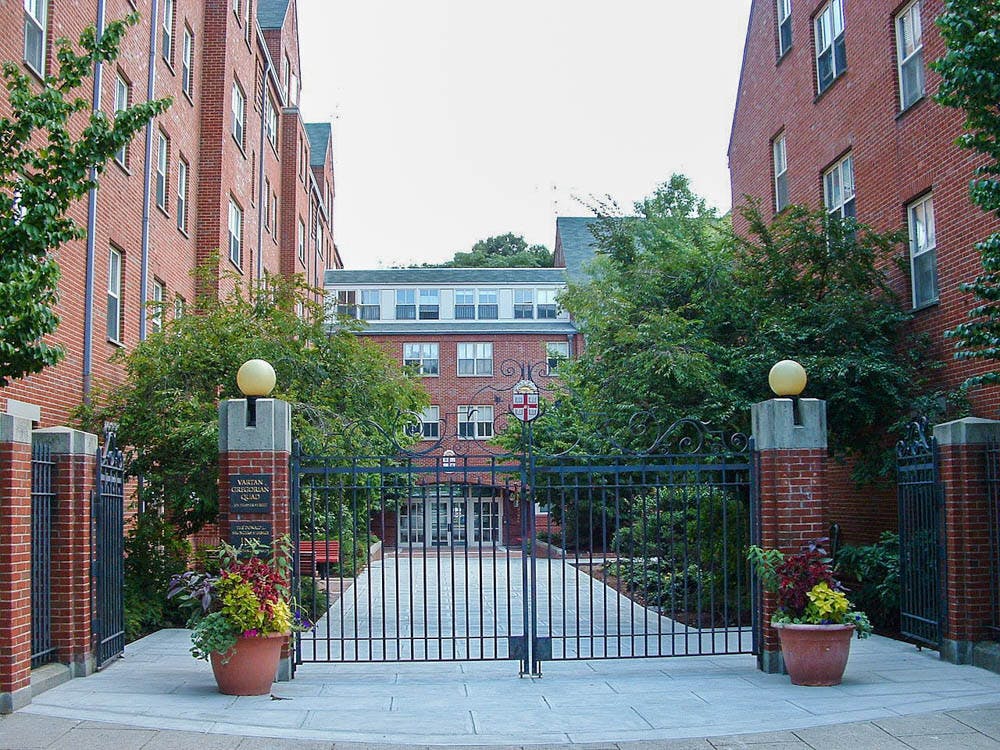Continuing with a long-term plan to improve and maintain the quality of dormitories on campus, the Department of Facilities Management plans to renovate five residence halls over the next two summers. Vartan Gregorian Quad, Minden Hall and the Graduate Center will undergo renovations this summer while Hegeman Hall and Machado House will be renovated in summer 2019, said Vice President for Facilities Management Michael Guglielmo. Altogether, these five renovation projects will total around $8.4 million.
The University has invested around $95 million into residence hall renovations since 2012, Guglielmo said. Of this total, $73 million mainly addressed “building first-year community” through “transformative renovations” of first-year dorms like Keeney Quadrangle and Andrews Hall. The current phase of dorm renovations — which has cost $22 million so far on projects such as renovating Barbour Hall and residential buildings on Wriston Quadrangle — targets dorms due for renewal through cosmetic and mechanical upkeep.
Minden and New Dorm will undergo cosmetic renovations this summer, Guglielmo said. Both dorms will receive carpet replacement in areas that have seen the most wear and tear, and the fire alarm system for all of New Dorm will be updated. Some of Minden’s flooring and suite bathrooms will see upgrades as well.
In addition to interior cosmetic renovations like those planned for Minden and New Dorm this summer, Grad Center will house a new lounge and Hegeman and the older section of Machado will receive exterior repairs and electrical updates in summer 2019, Guglielmo said. Machado’s lounges will also see updates, and some of the oldest bathrooms in the building will be renovated. “Some of those are definitely beyond their life cycle,” he said.
Alex Song ’20, a resident of Minden, had few complaints about the features targeted for renovation. “Everything’s pretty consistent with what you would expect from a building that age,” he said, noting that Minden was built in the early 20th century. Instead, Song expressed more concern for the state of the building’s piping and heating systems.
Song recalled an incident where a pipe burst in one of Minden’s walls. “On that side of the building, every floor had water pouring down through the ceiling,” he said. He added that the heating turns on and off sporadically, making temperature difficult to control. This has been a problem for his suitemates, whose room has been unheated for the past week. “It’s been really cold in their room, and obviously, they can do nothing about that,” he said.
Guglielmo said that heating “is not part of the scope” of the renovations planned for Minden this summer. “But in future renewal, that may be one of those items … that might be considered for an upgrade,” he added.
While these renewal upgrades are routine, Guglielmo emphasized that upkeep projects can also help build communities within dorms. This summer’s renovation of Grad Center aims to do just that by constructing a common lounge area on the second floor of Grad Center E. “Right now in the Grad Centers, (students) don’t have a common space to hang out in,” said Associate Director of the Office of Residential Life Richard Hilton. “We’ve heard from students loud and clear that they need a sense of community within the structure.”
Grad Center’s renovation will closely resemble the project that installed a large common lounge in Morris Hall last summer, Hilton added.
Sarah Pugliese ’20, who lives in Grad Center B, agreed that the Grad Center lacks community. The building consists of four separate towers and every room in Grad Center is a single, Pugliese explained. Because of this, many Grad Center residents have few opportunities to interact with each other. Pugliese acknowledged that a common lounge “is a good idea,” but she expressed uncertainty that the renovation plan will help build a community within Grad Center.
Furthermore, the tower which will house the lounge, Grad Center E, is not residential. This means students in the Grad Center will need to go outside to reach the lounge, Pugliese said. “It probably would be better if they could put lounges in the towers where people live.”
Pugliese also said that the Grad Center could benefit more from cosmetic upgrades to interior walls, carpeting, bathrooms and suites. “I thought they were going to be renovating the actual residence halls,” she said. “They’re not terrible, but they don’t look nice.” Such renovations could also help build community by encouraging more students to move to the Grad Center with their friends, Pugliese added.
“We’re always trying to make sure that we’re staying ahead of any surprises (such as) systems breaking (and exteriors) leaking and failing,” Guglielmo added. By maintaining a “responsible level of renewal,” Guglielmo said that Facilities Management and ResLife are able to select renovation projects based on student feedback and institutional priorities “rather than projects picking us.”





